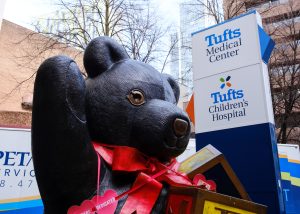Dateline: Capetown
March 2, 2008
It was another hot summer day on January 21st when we made it to the Khayelitsha TAC offices. Nestled across from a marketplace over a Medicins Sans Frontieres (Doctors Without Borders, an international medical organization) clinic, some 7,000 patients come here monthly to receive antiretroviral treatment. The number seems pitiful when one considers that perhaps a quarter of Khayalitsha’s has 650,000 residents have HIV. Why do more not visit the clinic? Who knows. TAC are always trying to get more to come to the clinic in order to get tested.
The clinic doubles as an organizational base, and several of those we met are movers and shakers in their sphere. But clinic workers and patients were given equal time. Some wore the Campaign’s signature “HIV POSITIVE” shirts. Clothing has long been an effective propaganda platform, and TAC maximizes use of the t-shirt as canvas. Nelson Mandela, who is not HIV positive, has been photographed with Zackie Achmat wearing a TAC shirt. While Madiba’s endorsement increased the heat under Thabo Mbeki’s feet concerning the crisis, TAC’s persistent legal challenges, such as suing for mother-to-child transmission prevention treatment and forcing his hand on ARV’s are what have made him flinch. And the sparks have flown; Barack Obama visited the TAC Khayalitsha office in August 2006. TAC’s influence is just as important in the streets, where the afflicted are. Issues of the TAC communiqué “Equal Treatment” feature theme issues on, for instance, children, mothers, and HIV, while others are devoted to scientific layman’s articles or political coverage interspersed with cartoons attacking the health minister, reading lists, and advice.
We talked all morning with TAC, and if our previous visits to the Site B hospital and the Khukuleka Men’s Group left vivid personal impressions on us all, the day with the TAC crew was community first. Everyone had a story, and their stories intertwined, as shared struggles do. We got in on corny jokes they had heard a thousand times but us only once, and when they cut the chit-chat to let someone with something important to say say it we leaned forward and listened. We saw people surrounded by poverty and illness so full of lives worth fighting for. What poems do they write, what are their songs like? Seeing the problem on the ground, in this South Africa of the plague years, made us want to help fight with them.
The staff loved the long, colorful banner we brought, a present from the UMass Boston class who visited two years ago. We dug their informational pamphlets and magazines, primary source documents in our study of the South African response to the pandemic. We received maps of Khayalitsha HIV & TB clinics, activist pamphlets written in Xhosa, Zulu, and English, and magazines. In addition to their continued monitoring of the government, a recent issue of “Equal Treatment” focuses on other missions such as providing antiretroviral to prisoners and a complaint against Merck, the pharmaceutical giant.
Swapping seats and milling about to attend to tasks while we conversed with Mandla, Phumzile, and the others were TAC workers, some of whom entered and exited the discussion at leisure. One announced to applause that her viral load was undetectable, while another, a confident young man in Nikes, related an almost literal Lazarus tale of waiting to die from TB only to return to talk to us. An HIV positive mother was overjoyed to give birth to an HIV negative son.
The professors and students who took the trip feel like we brought back wealth worth all the Krugerrand in Cape Town. Casting a pall over the trip was the detainment of one of us (the smartest kid in the class!) at Logan over visa problems. Thao, we only hope that we can inspire you with the energy we brought back from our trip, as much as you inspire us to work hard and look at things in a different way.
We’re a pushy, zany, curious, contentious, analytical, observant group of (for the most part) good dancers and (for the most part) lousy pool players who are (to the last) people who want to do something to relieve suffering. Maybe we won’t do it in Cape Town, maybe we’ll do it here, but we can apply to ourselves what our bodyguard/tour guide/emissary/main man Mandla Majola said to us anywhere: “We’ve overcome colonialism, we’ve overcome apartheid, we can overcome this epidemic.” It’s the spirit behind the words that is important, and it’s that tenacity that will eradicate HIV-1.










































































